In most cases, science fiction films err on the side of fiction rather than reality. Sometimes a film, such as Star Wars, is a fantasy film disguised as a sci-fi spectacle, or a film will deviate so far from genuine science that it is pure imagination. Occasionally, science movies will accurately incorporate genre tropes with elements of real-life physics, biology, quantum mechanics, etc. Science-related movies are often more enjoyable when they're based on real science – not every sci-fi flick can pull it off.
Some artistic license is always necessary because strict scientific rigor and peer-reviewed research would undoubtedly make for a very boring movie. As a result, while these films may not be 100% scientifically accurate, they get part or most of their science correct. In many cases of the most scientifically accurate movies, experts have weighed in or outright advised those on the set of some of the best and most creative science-fiction films ever made.
12 'Woman in the Moon' (1929)
Directed by Fritz Lang
An almost 100-year-old film, Woman in the Moon was one of the oldest serious science fiction pictures from almost a century ago, when the industry was still in its infancy. Greedy capitalists believe there are vast riches hidden beneath the moon’s surface and dispatch a team of astronauts to find them. The team discovers a breathable environment on the lunar surface, but after various clashes, they realize they must leave one person behind on their return voyage to Earth.
Of course, there will be a lot of factual inaccuracies in a movie set decades before NASA was even established. However, director Fritz Lang meticulously incorporated much of the contemporary understanding of engineering and astronomy. The biggest moment it gets right is the use of a giant rocket to blast off from Earth and reach the moon.
11 'Alien' (1979)
Directed by Ridley Scott
“In space, no one can hear you scream,” is the famous tagline to Ridley Scott’s Alien, one of the best sci-fi horror films of all time. The sentiment holds true as Ripley (Sigourney Weaver) and the rest of the crew of the Nostromo come into contact with a hostile alien species. It becomes a race against time, as Ripley must try to avoid or fight the alien while attempting to flee the doomed ship in an escape pod.
Unlike most depictions of sleek, stylish, and roomy spaceships, the Nostromo from Alien is a bulky, ugly, cramped blue-collar rig. In a future where space travel is commonplace, spaceships will probably take on a more practical look, especially on a commercial towing vehicle. Putting the crew in suspended animation is also a practical and more scientifically workable practice for long-distance travel than faster-than-light.
10 'Ant-Man' (2015)
Directed by Peyton Reed
Ant-Man is one of the MCU's most underrated films and stars funnyman Paul Rudd as Scott Lang who burglarizes scientist Hank Pym’s (Michael Douglas) home and steals an incredible shrinking suit. Pym had secretly planned the entire operation to fool Lang into becoming Ant-Man, a superhero with the ability to grow or shrink in size. Hank then gets Scott to recover another prototype suit known as Yellowjacket from the devious Darren Cross (Corey Stoll).
Spyridon Michalakis, a quantum scientist at the California Institute of Technology, was a science advisor for Ant-Man. His most significant contributions were to the Quantum Realm, where the superhero shrinks so small that almost all known laws of physics are void. This is because of Quantum Entanglement, which occurs when a set of generated particles are so close together that they cannot be described separately. It's a shaky concept on film, but the level of accuracy can be conveniently ignored or forgotten once the action starts.
Ant-Man
-
- Release Date
- July 17, 2015
- Rating
- PG-13
- Runtime
- 117 minutes
Directed by Robert Zemeckis
Contact is an adaption of astronomer Carl Sagan’s novel about what it would be like to make first contact with aliens. Dr. Ellie Arroway (Jodie Foster) attempts to analyze a communication from the Vega star system in order to prove the existence of extraterrestrial life. She must do it while dealing with an antagonistic National Security Advisor (James Woods) and religious fanatics determined to stop her at any cost.
Carl Sagan’s involvement undoubtedly gives weight to the science of the beloved alien movie Contact. Jargon such as “Hydrogen times PI” may appear to be nonsense, yet it has a rational foundation to explain the plausibility of the protagonist’s activities. Contact, according to many astronomers, is also strikingly loyal to the ethos and methodology of the SETI Institute’s quest to prove the existence of extraterrestrial intelligence.
Contact
-
- Release Date
- July 11, 1997
- Runtime
- 150 minutes
8 'Minority Report' (2002)
Directed by Steven Spielberg
Based on the 1956 short story of the same name by acclaimed sci-fi writer Phillip K. DIck, Minority Report has been prescient about the direction modern society is moving towards. The plot centers on “precogs,” or humans who have the psychic ability to anticipate murders before they occur, and the Precrime unit, which uses this information to arrest people. John Anderton (Tom Cruise) is the chief of the Precrime unit until the precogs foresee that he would murder someone and he must go on the run to prove his innocence.
While clairvoyant children may not exist, much of the future predictions Minority Report has made have come to pass as time marches forward. Tom Cruise must hop across rows of driverless cars in one intense action scene, a technology that is continuously growing these days. Another example of predictive science was the existence of fully automated homes controlled by the sound of one’s voice which many people now have. Of course, and more disturbingly, the biggest thing Minority Report gets right is the extreme surveillance society now predominantly possible thanks to the internet, smartphones, cameras, and more.
7 '2001: A Space Odyssey' (1968)
Directed by Stanley Kubrick
2001: A Space Odyssey, which debuted in the late 1960s to ambivalent reviews, is today deservedly acknowledged as one of the best sci-fi films of all time. Scientists find a bizarre monolith buried on the moon’s surface that sends an enigmatic signal into space. Years later, a crew of astronauts and the supercomputer HAL9000 get dispatched on a trip to Jupiter, but the mission becomes jeopardized when HAL acts erratically.
With director Stanley Kubrick’s famous attention to detail and author Arthur C. Clarke’s background in physics and mathematics, it’s no wonder 2001: A Space Odyssey has many scientifically accurate moments. Moments like no sound in space, depictions of zero gravity, and even the design of the ship Discovery One are based on real scientific study and experience. That the film came out when the first man hadn’t even walked on the moon yet makes the accuracy far more impressive.
2001: A Space Odyssey
-
- Release Date
- April 2, 1968
- Director
- Stanley Kubrick
- Cast
- Keir Dullea , Gary Lockwood , William Sylvester , Daniel Richter , Leonard Rossiter , Margaret Tyzack
- Runtime
- 141
6 'Gattaca' (1997)
Directed by Andrew Niccol
Gattaca embodies many people’s anxieties that technology may eventually lead to scientists playing God, as people can genetically screen every child for things like defects and future potential. Vincent Freeman (Ethan Hawke) aspires to reach the stars but gets confined to Earth because he is a genetically inferior “in-valid.” He’s able to covertly swap his DNA profile with Jerome Morrow (Jude Law), a “valid” and join the space program. Unfortunately, a murder investigation into one of his peers threatens to unravel his plans.
In the world of Gattaca, there are many unsettling implications, such as eugenics. However, it is already possible to artificially fertilize embryos and screen out genetic defects using a process known as pre-implantation genetic diagnosis (PGD). Hopefully, scientific ethics will contribute to preventing the employment of these tools in the grim future that the scientific movie Gattaca portrays.
Gattaca
-
- Release Date
- October 24, 1997
- Director
- Andrew Niccol
- Rating
- PG-13
- Runtime
- 146 minutes
5 'Arrival' (2016)
Directed by Denis Villeneuve
Arrival proves that love is a powerful force that drives people to do outlandish things like converse with an alien species that doesn’t speak any known language. The plot revolves around linguist Louise Banks (Amy Adams), who gets recruited by the United States government to assist them in communicating with visitors from outer space. Banks sees visions of her future daughter as she continues to make breakthroughs with the alien’s unconventional language.
The chances of sharing a vocabulary comparable to that of an extraterrestrial species are slim to none. That said, the film is renowned for its incredible use of real concepts from linguistics, as the Arrival's creators even consulted real professionals from that field to make it as accurate as possible. In that regard, Arrival manages to be scientifically accurate in its portrayal of the deconstruction of language and the basics of how communication and understanding can take place.
Arrival
-
- Release Date
- November 11, 2016
- Director
- Denis Villeneuve
- Rating
- PG-13
- Runtime
- 116 minutes
4 'Interstellar' (2014)
Directed by Christopher Nolan
Many critics consider Christopher Nolan’s Interstellar to be one of the best science fiction movies ever made, although opinions were split at the time of its premiere. The plot revolves around former NASA pilot Joseph Cooper (Matthew McConaughey), who leads a team of astronauts on a journey to discover a suitable planet for. The crew must travel to three potential applicants, each with their own set of hurdles, as Earth is rapidly becoming uninhabitable. In the end, Interstellar is a great example of an incredibly emotional sci-fi film that will make people want to cry and appreciate the science and visuals at work.
Some of Interstellar's seemingly outlandish elements, such as wormholes and time dilation, appear to be implausible, yet have a basis in theoretical physics to back them up. The black hole is also an extremely accurate visual portrayal of how light would bend inside of it. It’s called gravitational lensing, and depending on your angle of approach, a dazzling halo could form around it. The movie nails scientific accuracy likely thanks to its renowned scientific consultant and executive producer, Kip Thorne, who is a theoretical physicist and Nobel Laureate.
Interstellar
-
- Release Date
- November 7, 2014
- Rating
- PG-13
- Runtime
- 169 minutes
3 'Her' (2013)
Directed by Spike Jonze
Director Spike Jonze's Her follows the (now eerily accurate) experiences of Theodore (Joaquin Phoenix), a lonely yet introspective man who makes a living by composing heartfelt letters on behalf of others. When he gets a new operating system, he meets "Samantha" (voiced by Scarlett Johansson), whose human-like personality soon leads to genuine love on Theodore’s part.
Aside from its dubious ending, Her hits all the right scientific notes with its narrative. Praised by computer scientists like Ray Kurzweil for the way it "compellingly presents the core idea that a software program (an AI) can – will – be believably human and lovable," Her is turning into a reality right before audiences' eyes. With recent developments in artificial intelligence and the way users are interacting with tools like ChatGPT as if they were actual partners, it won’t be long before something (or someone) like Samantha could exist.
2 'The Martian' (2015)
Directed by Ridley Scott
Is it possible to withstand not only a harsh climate but also loneliness? That is the arduous task presented to astronaut Mark Watney (Matt Damon), who gets hit by debris during an evacuation mission and becomes stranded on the surface of Mars all alone in one of the best real science movies. While grounded, he must learn to survive in a wholly unprecedented situation, using only his wits and infrequent communications with a NASA crew.
Watney’s use of human feces as fertilizer for the Martian soil is the most scientifically correct plot point in The Martian. He grows potatoes with it, which NASA researchers were able to reproduce successfully under extreme conditions similar to Mars. Other accurate moments include the shelter on Mars, the way Mark synthesizes water, and the life-saving rocket. A TIME article even notes that the "movie’s errors are minor and even cosmetic," which is impressive considering how the film still manages to be remarkably gripping and exhilarating the entire time.
The Martian
-
- Release Date
- October 2, 2015
- Rating
- PG-13
- Runtime
- 144 minutes
1 'Apollo 13' (1995)
Directed by Ron Howard
Apollo 13, a gripping Hollywood drama, is based on the real-life events that took place the titular lunar mission. Astronauts Jim Lovell (Tom Hanks), Fred Haise (Bill Paxton), and Jack Swigert (Kevin Bacon) embark on their journey and initially experience a smooth trajectory. However, catastrophe strikes when a devastating oxygen tank explosion abruptly terminates their planned lunar landing. The emergence of even more technical challenges puts the astronauts' lives at stake.
Directed by Ron Howard, the 1995 classic is known as "the most realistic of all the space movies," which is an actual statement from an interview with the retired astronaut Chris Hadfield. The film's depiction of scientific aspects like the explosion and accumulation of carbon dioxide were accurate to what actually happened. Most artistic liberties taken were around dramatizations of the human interactions, like the iconic "Houston, we have a problem" line, which was altered from what Commander Lovell actually said – "Ah, Houston, we’ve had a problem here."
Apollo 13
-
- Release Date
- June 30, 1995
- Runtime
- 140
"Movies" - Google News
January 09, 2024 at 10:00AM
https://ift.tt/4oMySpB
12 Best Sci-Fi Movies Based on Actual Science, Ranked by Accuracy - Collider
"Movies" - Google News
https://ift.tt/Caqm46p
Bagikan Berita Ini
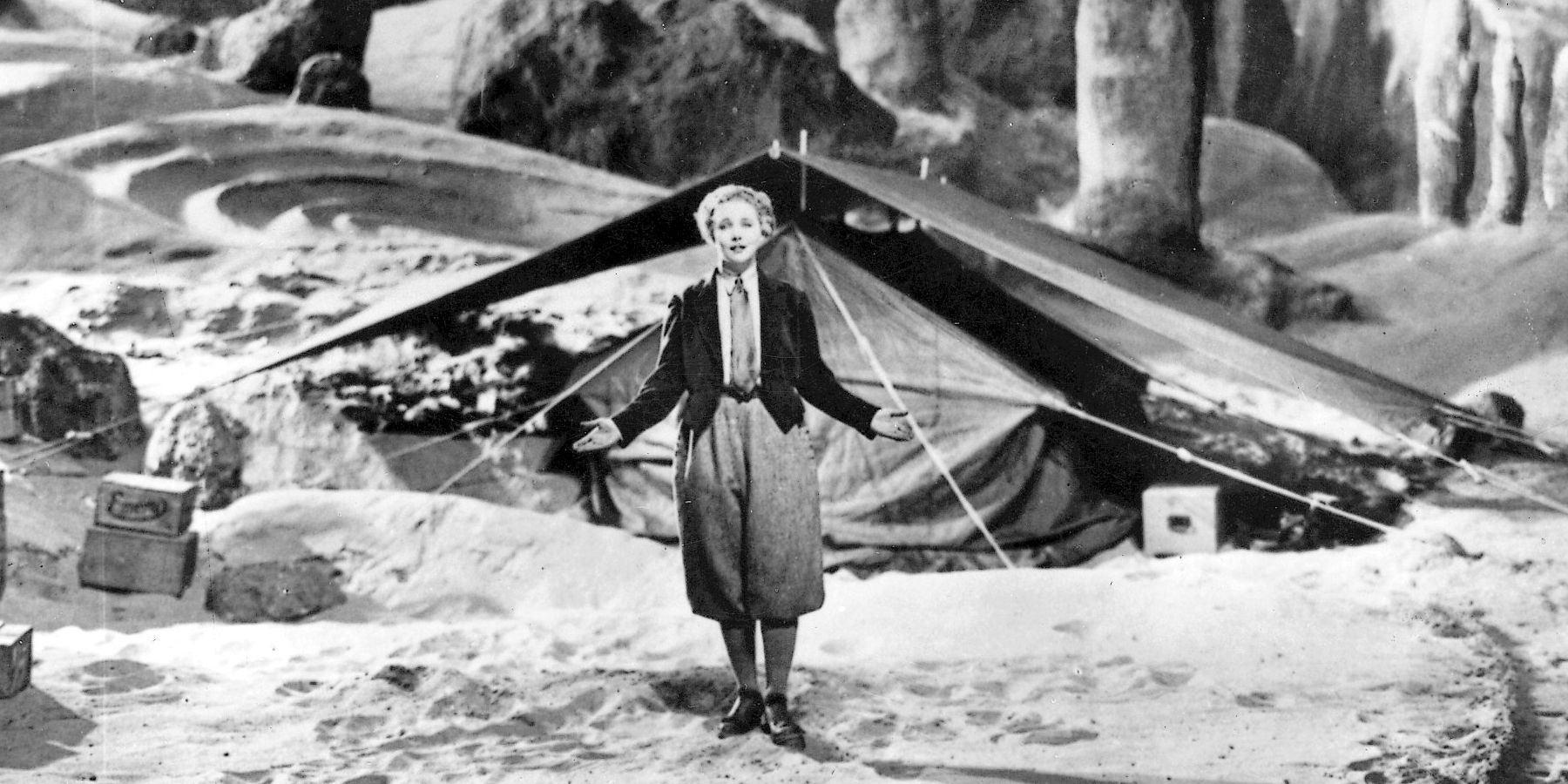

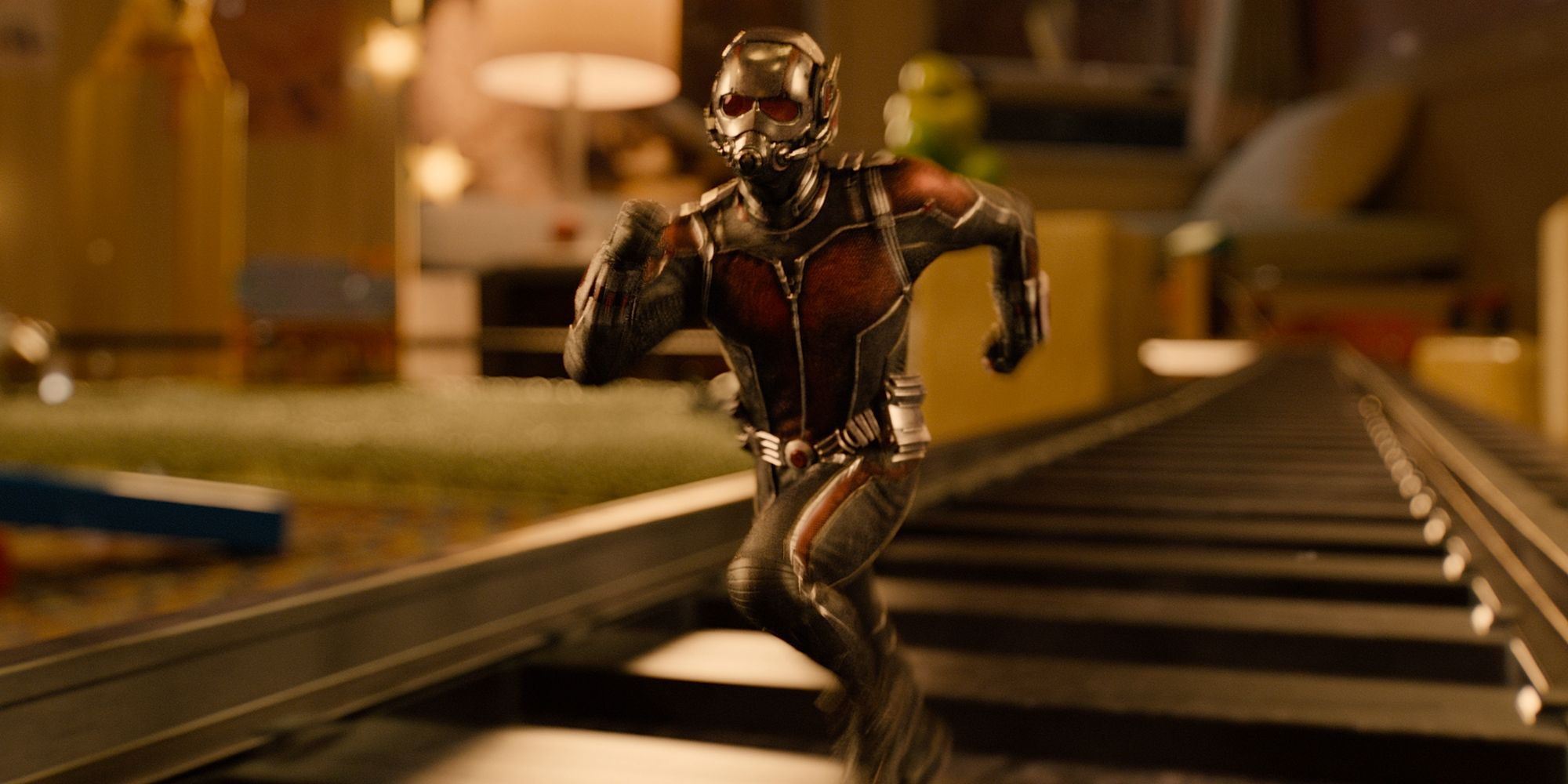
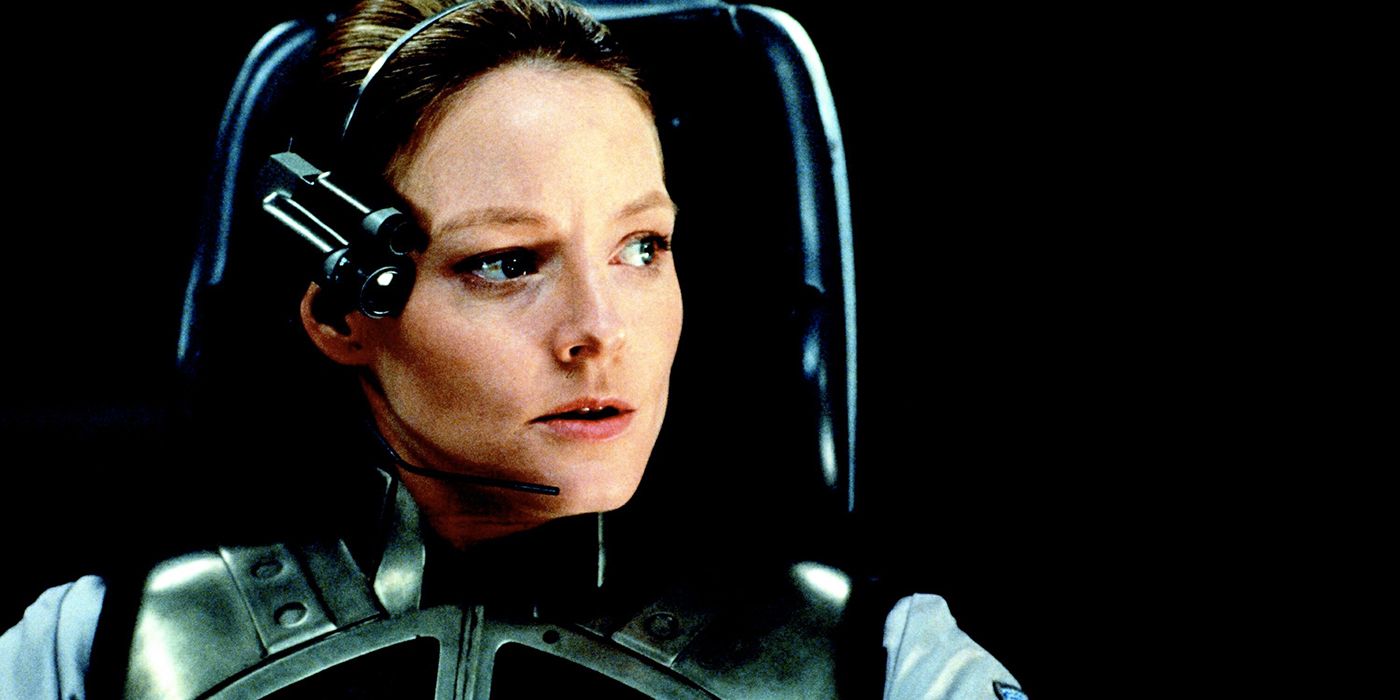
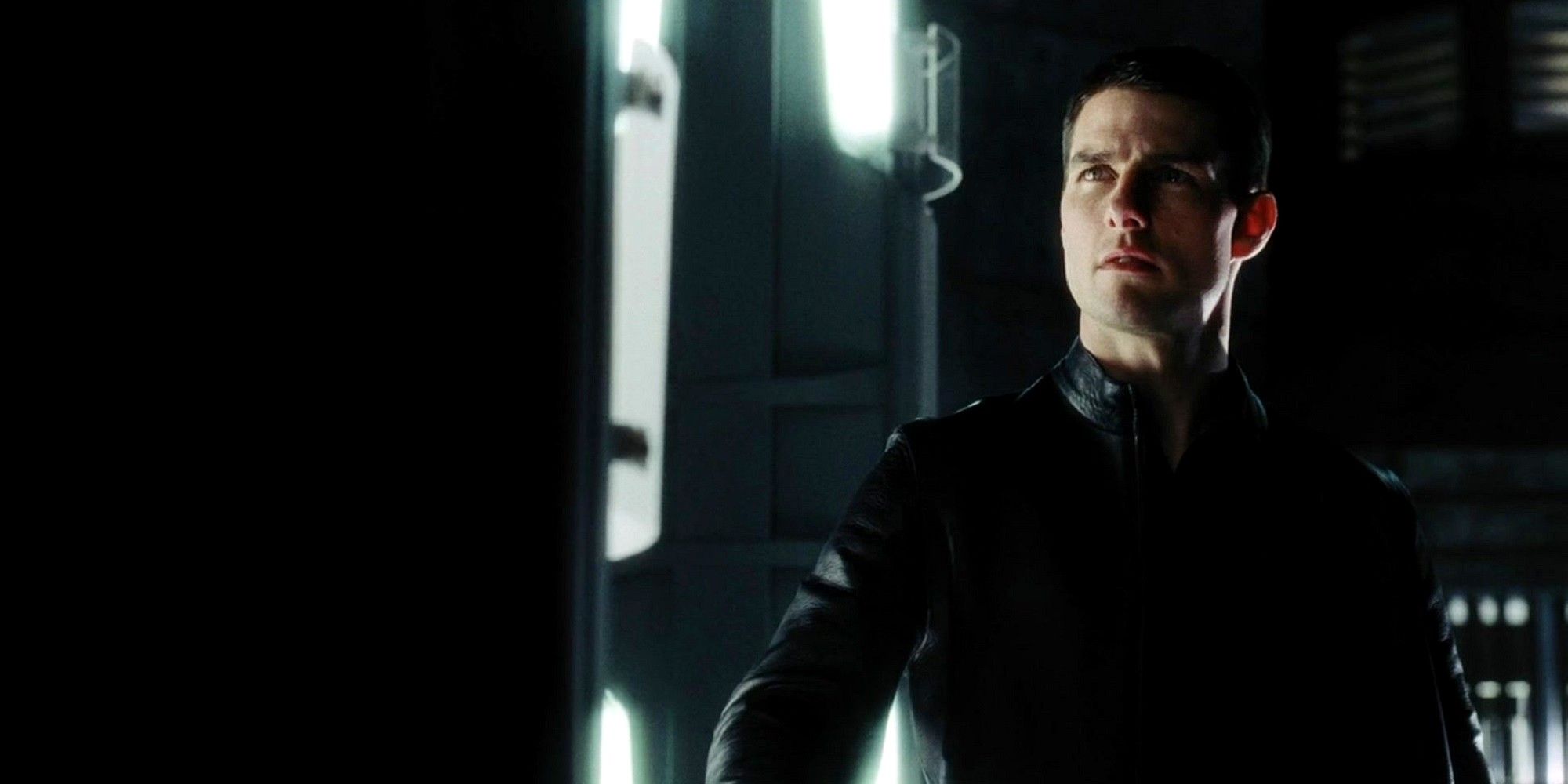
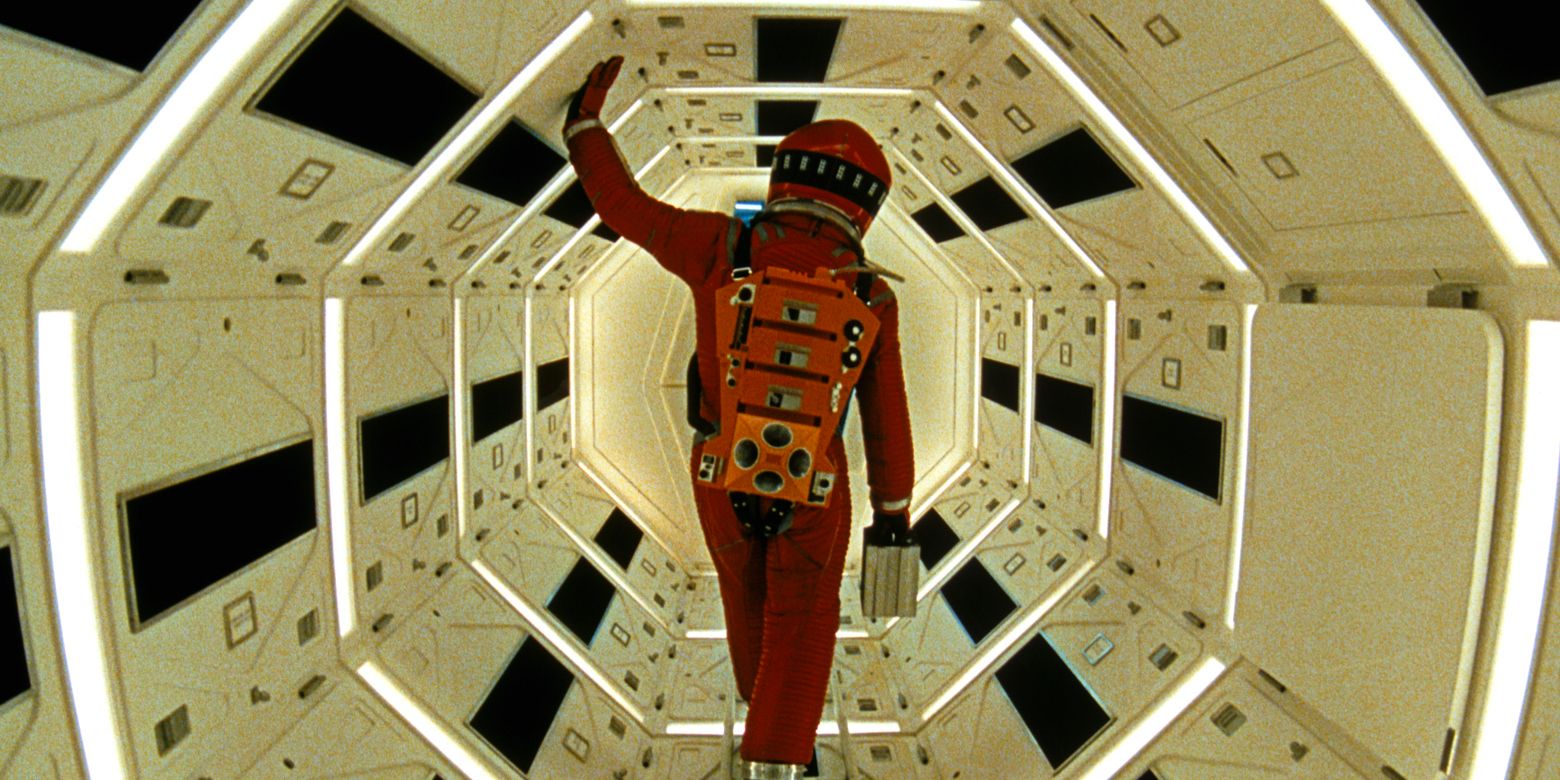
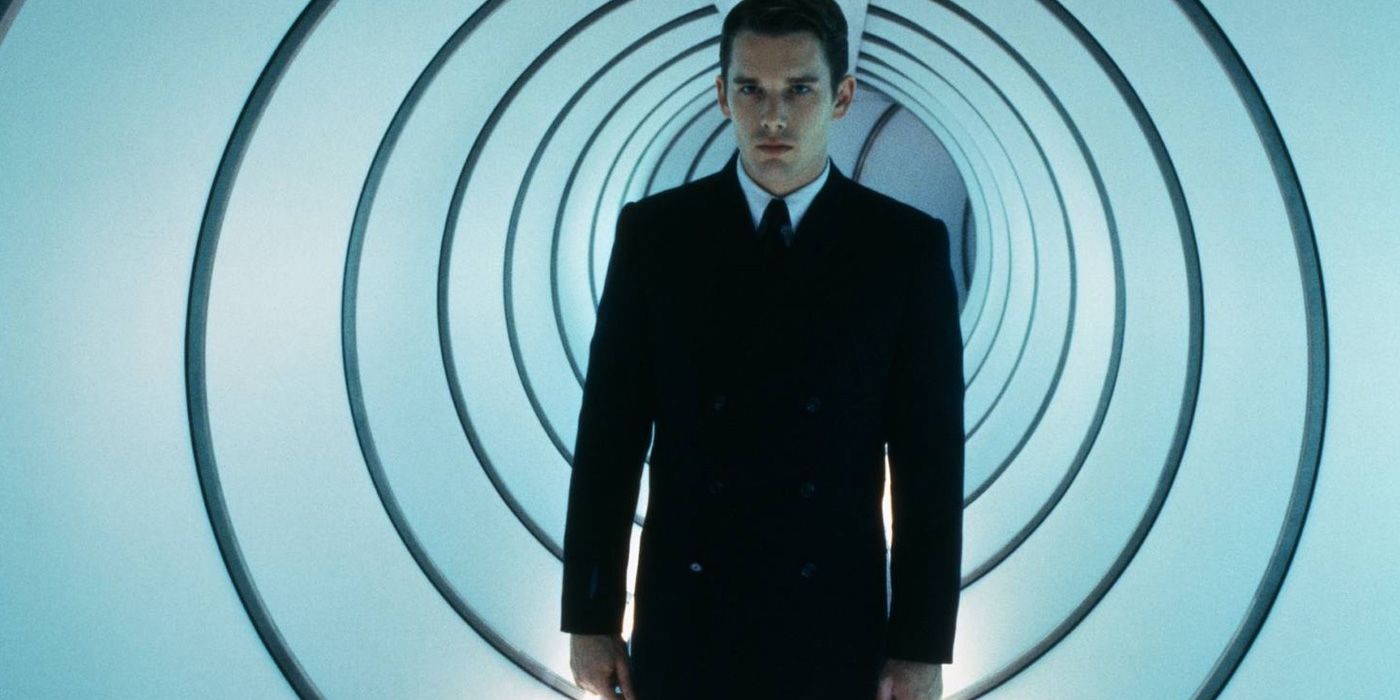



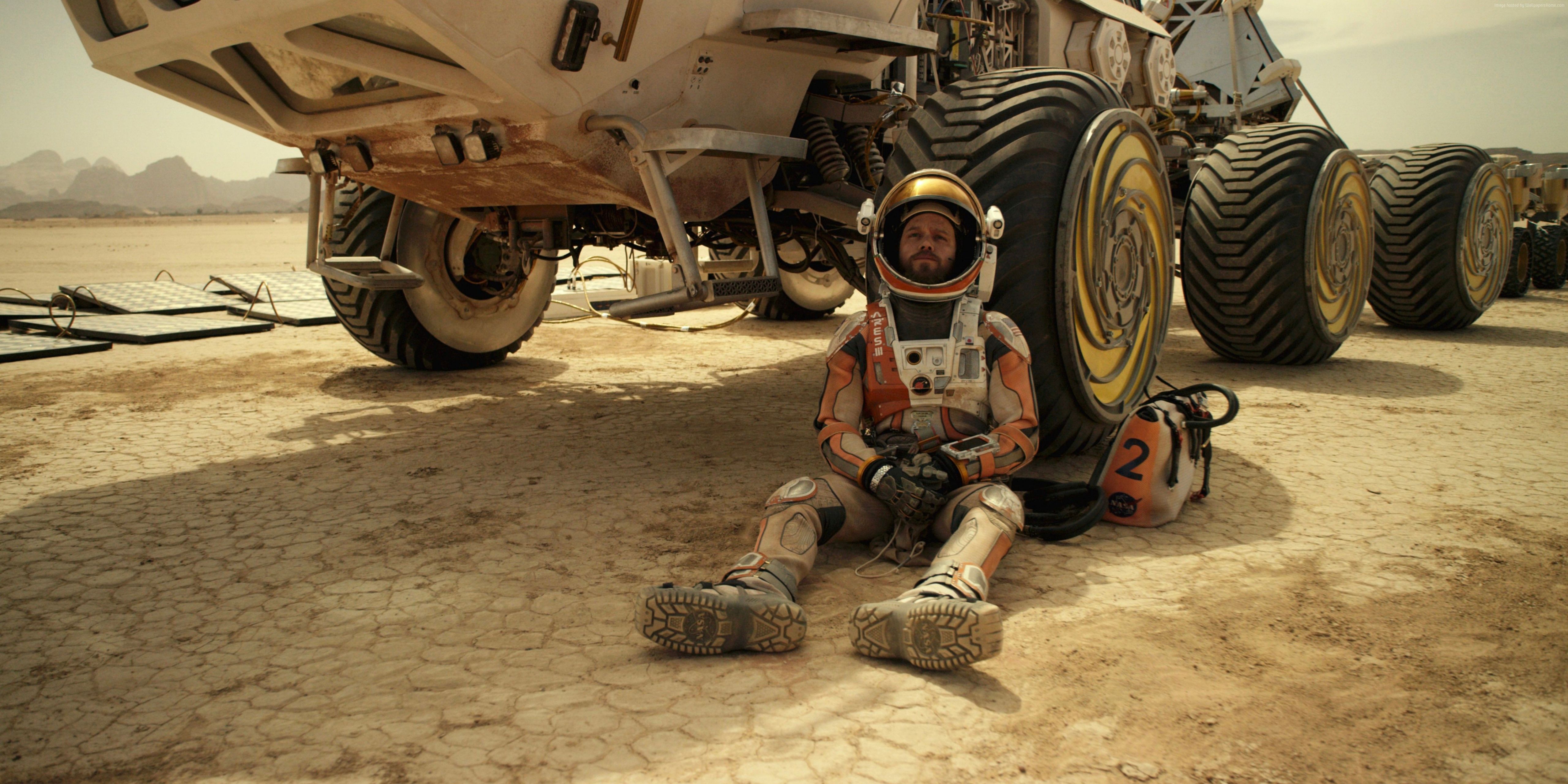
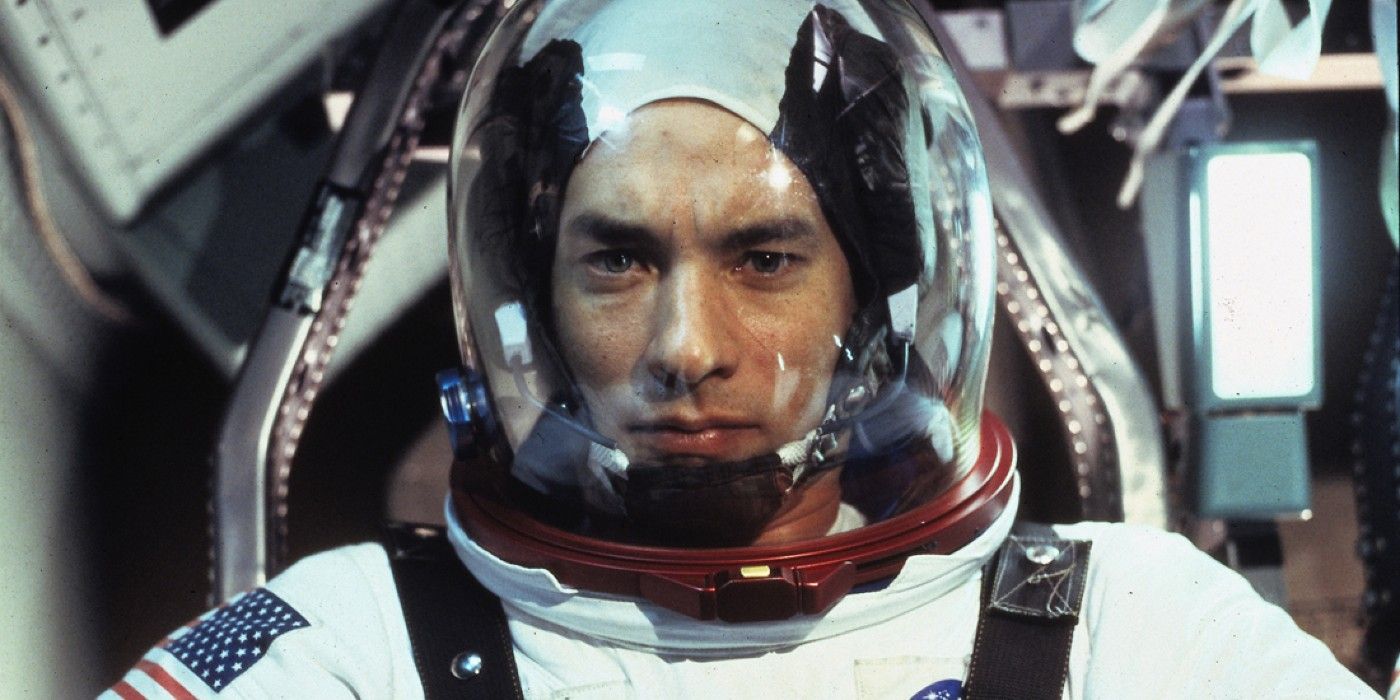














0 Response to "12 Best Sci-Fi Movies Based on Actual Science, Ranked by Accuracy - Collider"
Post a Comment